My mother killed herself when she was 42 and I was 12. She suffered from mental illness, what would today be called bipolar. But the difficulties began before that because she was frequently institutionalised and she wasn’t really present. When a parent isn’t around, the child assumes it’s her fault and that’s what I did. The child assumes she isn’t lovable. Then you have a choice: you can go through life believing you’re unlovable and feeling guilty about what’s happened, or you can try to understand that your parent was suffering from something and didn’t know how to heal.
Dealing with what happened to my mother isn’t over – it’s still going on because life is a journey towards wholeness. Living a whole, good life doesn’t just happen – it requires intention. You have to decide: this thing has happened to me, am I going to be a victim of it? Because it’s not what happens to you, it’s what you do with it. If you can look back and see it with understanding and with an open heart, then you can forgive and you can understand.
The best way to understand my relationship with my father [Henry Fonda] is to remember the movie On Golden Pond. The character he played was just like him in life, someone who had a hard time expressing his feelings and his emotions. That was true, I think, for many people of that generation. He used acting as a mask behind which to hide his emotions; he abhorred anything that showed his vulnerability. I adored him. He was a good man with wonderful integrity.
My father was the reason I became an activist. As I was growing up he was making films like 12 Angry Men and The Grapes of Wrath, playing characters who spoke up for justice, who fought for the underdog. I knew he loved these characters and I wanted him to love me. In the end, he was proud of me but it took a long time, and for a while he thought I was a foolish, frivolous person. He never said anything to me, but some time ago someone sent me an interview he did on British TV and he said the most wonderful things about me. I cried so hard watching it, because he never said those things when we were together.
No one in my family was into fitness, but my stepmother did take part in some of my fitness videos. And my son and his wife work out every day – they understand the value of it. He’s an actor and he has that to motivate him.
At the centre of Grace and Frankie [her series with Lily Tomlin, in which they play two wives whose husbands confess to being in a gay relationship] is a recognition that the rug can always be pulled out from under us in family life. We think everything is moving along and we are not 100% happy, but we accept it: and then everything changes. How one survives, that is the big question. I’ve had some tragedies and unexpected things happen in my life, and it’s always nice to know you can survive – and more than survive, you can go on to thrive. Looking back over my 78 years, it was the difficult things that could have broken me that went on to teach me the most – and that made me more empathetic and understanding of others.
I love being a grandmother, though I live further away from my grandchildren now and don’t see them as much as I used to. What I hope for them is that they discover their passion, because the most wonderful thing in life is finding out what you want to do. I want them to learn that you don’t always get your way in life, but that the important thing is not falling apart. You hope as you get older that you’ll gain wisdom, but wisdom doesn’t just come from having lots of experiences. If I’ve got any wisdom it’s because I’ve looked at my experiences and tried to understand their meaning: that’s what matters.

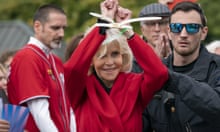
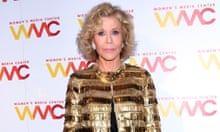
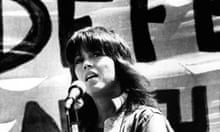
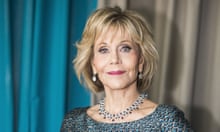

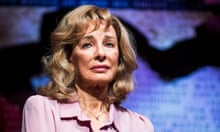
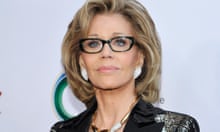
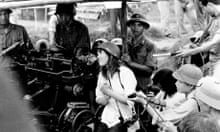
Comments (…)
Sign in or create your Guardian account to join the discussion